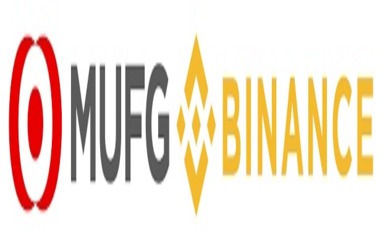
MUFG Trust’s Progmat Platform:
MUFG Trust, renowned for its expertise in blockchain solutions, established the Progmat blockchain tokenization platform, which encompasses the Progmat Coin stablecoin platform. Progmat has evolved into a collaborative venture involving other major players, including Japan’s second and third-largest banks, SMBC and Mizuho.
Multicurrency Stablecoins with Global Reach:
The stablecoins developed as part of this partnership will not be confined to Japanese users alone. Consequently, Japan has the potential to serve as Binance’s stablecoin issuance hub. This development follows the New York State Department of Financial Services (NYDFS) instructing Paxos Trust to cease issuing the Binance USD (BUSD) coin. The anticipated launch timeline for Japanese Binance stablecoins is 2024, contingent on Binance Japan securing an Electronic Settlement Methods Transaction Business Provider license.
Japanese Legislation Supports Stablecoins:
In June, Japanese legislation came into effect, providing support for various types of stablecoins, including those issued by banks and trusts. In cases where a trust, such as Mitsubishi UFJ Trust, issues the stablecoin, it allows non-licensed issuers, and Know Your Customer (KYC) requirements are waived for stablecoin transfers. Additionally, reserve assets are safeguarded, resembling the Paxos Trust solution.
Technology Foundation:
The underlying technology of the Progmat blockchain is based on the Corda enterprise blockchain. However, MUFG has collaborated with DataChain and TOKI technology to issue stablecoins on multiple public blockchains, enabling cross-chain transfers. Initially, Ethereum will be employed, followed by integration with Cosmos, Polygon, Avalanche, and other blockchain networks. This move raises questions about the priority of Binance’s BNB Chain.
Empowering Web 3.0:
Tatsuya Saito, Founder and CEO of Progmat, expressed optimism about the collaborative stablecoin project’s potential impact on advancing Web 3.0. He emphasized Progmat’s role as a neutral infrastructure, enabling the issuance of diverse stablecoin brands with flexibility of use and minimal de-pegging risk. Mr. Saito underscored that Progmat does not compete with entities issuing their own stablecoins and hinted at forthcoming announcements involving multiple partners and financial institutions.
Binance Japan’s Strategic Move:
In November 2022, Binance Japan acquired an existing cryptocurrency exchange, subsequently renaming it Binance Japan. The exchange currently boasts a listing of 34 tokens, a significant offering in the Japanese market.
Enhanced Credibility and Quality Assurance:
For Binance, this partnership signifies a potential game-changer. It follows Binance’s loss of its own stablecoin and its efforts to promote lesser-known stablecoins on its platform by reducing transaction costs. In contrast, the alliance with MUFG Trust promises a higher level of quality and credibility compared to previous arrangements, including the one with Paxos.
Risks on the Horizon:
While the partnership holds promise, it is not without risks:
Regulatory Scrutiny: Binance has faced legal action from U.S. regulatory authorities, including the SEC and CFTC, with the possibility of criminal prosecution. The involvement of a global systemically important bank like MUFG may trigger enhanced regulatory scrutiny and due diligence to safeguard MUFG’s reputation.
Bank Deposits and Potential Runs: Japanese stablecoins may include a higher proportion of bank deposits, all of which are insured in Japan. However, in the event of a significant issue, a run on the stablecoin could ensue, potentially impacting the deposits of multiple banks.
Global Regulatory Pressure: The close linkage between MUFG Trust and Binance may attract the attention of global regulators seeking to separate the crypto world from traditional finance. This could lead to regulatory pressure on Japan.
Wrapped Stablecoins and Consumer Risk: The practice of wrapping tokens introduces consumer risk, as users may not be fully aware of the wrapping process. Additionally, it poses reputational risks for the trust issuer. Binance’s experience with wrapped stablecoins raised concerns, and MUFG Trust’s terms and conditions will play a crucial role in cross-chain wrapping.
Conclusion:
Despite the associated risks, the collaboration between MUFG Trust and Binance Japan signifies a pivotal step in the evolution of stablecoins and their potential for real-world use. The partnership enhances the credibility of stablecoins and holds the promise of enabling faster, more cost-effective cross-border payments, further solidifying the role of cryptocurrencies in the modern financial landscape.